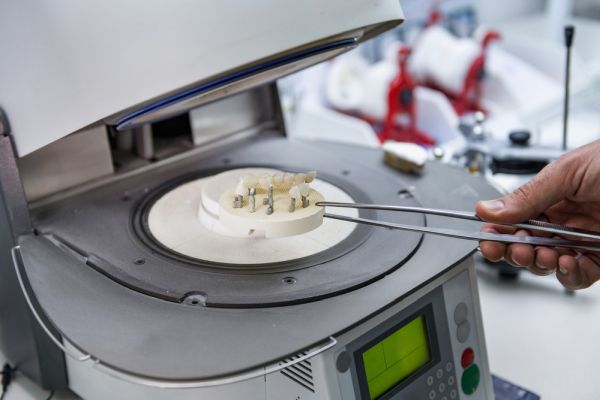What Are Dental Crowns and How Are They Used?

Dental crowns are nothing for you to be afraid of. Crowns are important restorations for your teeth and the procedure is very simple to understand. Crowns perform important functions for your oral health. Read on to find out everything you need to know about crowns.
Understanding dental crowns
Crown restorations are a common dental procedure that many dentists perform. Many people have crowns put in place to help with different kinds of tooth and mouth issues.
What are crowns?
Dental crowns are artificial restorations designed to help bring back a tooth to its natural size and shape. A dentist cements the crowns on the teeth that need repair. These common problems could include cracked teeth, teeth with severe decay or teeth that are damaged in other ways. Though crowns can sometimes extend down to the root surface, they usually replace the outer part of a person’s natural tooth.
When put in place, the crown will fully cover the part of the problem tooth that can be seen above a person’s gumline. Dental crowns are custom-crafted for each tooth to ensure a proper fit. Various materials can be used to create one, including porcelain and metal, ceramics, resin or even gold.
When to use a crown
A dentist may install a crown to help with various important functions. Crowns can protect weakened teeth, restore broken teeth and prevent cracked teeth from more severe damage. Crowns can also offer support to a tooth with a large filling.
Crowns will restore the shape, appearance and alignment of a damaged tooth. Once the dentist has securely cemented the crown in place, it is typically the only part of the tooth that a person can see. Natural-looking crowns will not stand out in a person’s mouth, blending in with other teeth.
How do crowns work?
Custom-created dental crowns cover teeth in a similar manner as a sewing thimble will cover a fingertip. Crowns encase the tooth completely, protecting what is underneath.
Constructed from resilient and durable materials, dental crowns act like natural teeth when it comes to normal chewing or biting.
Placing crowns
An anesthetic will numb the area of the tooth receiving the crown as well as the nearby tissue. The dentist will use a dental drill and an abrasive bur to remove the outer surface of the damaged tooth on all sides. This creates the necessary room for the crown to fit properly. If the tooth lacks the proper structure for a crown, the dentist will first build it up to create a solid foundation for the crown. Then, the dentist takes an impression of the tooth and sends it to a lab where the crown is created.
It can take two to three weeks for the new crown to be ready, so the dentist may place a temporary one in the meantime. When the final dental crown does arrive, the temporary will be removed. Then the new crown will be adjusted and cemented into its proper place.
Fix problem teeth with dental crowns
Dental crowns may not be a one-size-fits-all option for all tooth issues, but they could be a solution for your dental problems. If you believe you might need a crown or you are having tooth problems, talk to a dentist about how a crown might help you achieve the smile you desire.
Request an appointment here: https://www.roderickgarciadmd.com or call Roderick A. Garcia, DMD PC at (505) 634-5029 for an appointment in our Albuquerque office.
Check out what others are saying about our services on Yelp: Read our Yelp reviews.
Recent Posts
Even if we do not like it, there is a reason our general dentist recommends routine visits at least every six months. In fact, there are several important reasons why we should get into the habit of going to the dentist for regular visits as often as is necessary or as is told. The visits…
Cavities are a common dental issue that, when left untreated, can cause discomfort and affect oral health. A general dentist offers a variety of options for cavity treatment. Visiting the dentist for routine appointments can prevent tooth decay or repair the damage as soon as possible.Cavities, also known as dental caries, occur when bacteria in…
Besides ourselves, one other person plays a highly important role in maintaining our oral health, our general dentist. You see, the dentist is responsible for much of the work that goes into our mouths, and without them, most of us would be at a loss as to what to do to protect our teeth, tongue,…
For anyone who has a gap in their smile due to a missing tooth, a partial denture for one missing tooth can restore confidence. Dentures are commonly placed for aesthetic purposes, but there are two other reasons you should not hesitate to replace a missing natural tooth with a partial denture.You can get partial dentures…


